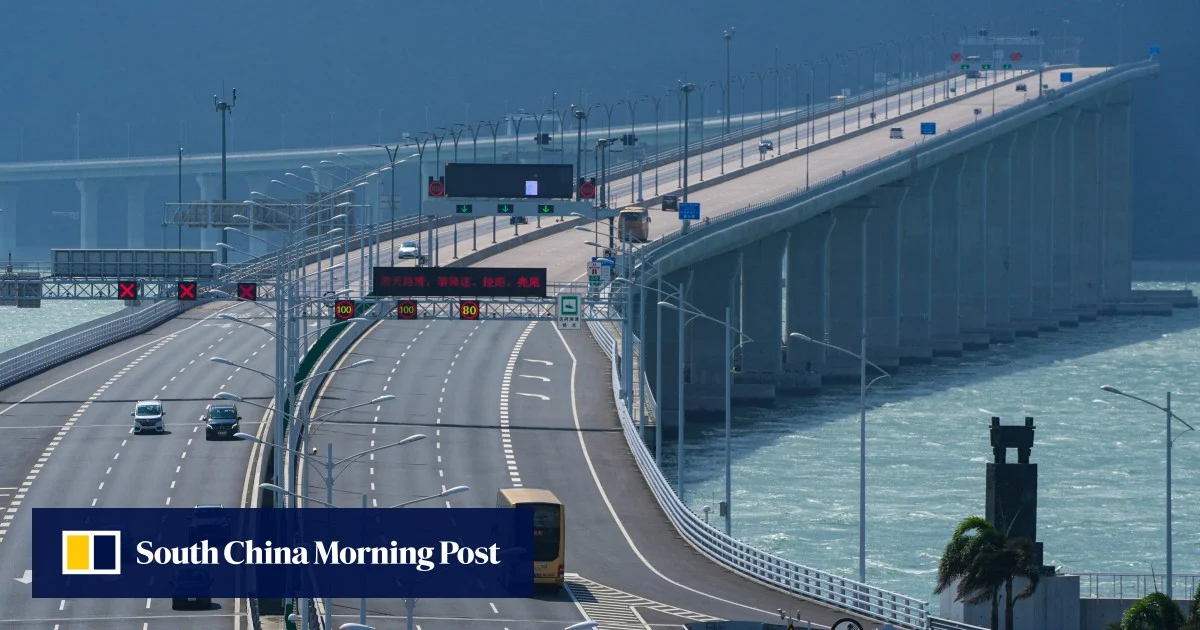Published on
November 22, 2025
With co-hosting the 15th National Games, Hong Kong has catered even more fully to its capability to move beyond just holding sporting events to tailoring activities that will enable the city to integrate even more fully of the global sporting economy. Being part of these events provides the city the foundation to grow and implement a sustainable sport`s ecosystem, to the joy of experts. More than the city, the ecosystem will benefit the entire GBA and the country.
The National Games’ co-hosting underscores Hong Kong’s capabilities, signaling a shift towards capitalizing on the sports economy through long-term planning, innovation, and strategic collaboration.
Hong Kong’s Strategic Positioning in the Global Sports Economy
Hong Kong’s ability to host major international sports events successfully has caught the attention of sports executives and policy experts worldwide. World Table Tennis (WTT) CEO Steve Dainton, speaking to China Daily, highlighted Hong Kong’s “vision, capacity, and connectivity” within the global sports economy. He explained that the city ticks all the boxes required for hosting high-profile events, pointing out that Hong Kong’s event capabilities, international appeal, and overall infrastructure make it a perfect fit for hosting prestigious competitions.
Dainton specifically mentioned that Hong Kong’s selection to host the WTT Finals in December was a clear example of the city’s growing reputation in the sports arena. This high-profile event, he noted, was a natural fit for the city, which has become increasingly adept at hosting major sports tournaments. For Dainton, it’s not just about hosting events; it’s about creating an ecosystem where these events can generate long-term economic and social value for the city.
Building a Sustainable Sports Ecosystem for Economic Growth
According to Dainton, for sports tournaments to deliver long-term benefits, host cities must understand the clear advantages of such events. The goal should be to foster collaboration among stakeholders and deliver an exceptional experience for fans and visitors alike. He emphasized that the fundamentals for a sustainable sports-events ecosystem are already present in Hong Kong, thanks to its well-established tourism sector, vibrant business community, and strong fan base for sports like table tennis.
However, Dainton also pointed out that the next step for Hong Kong is to link these elements together around a shared narrative that highlights the city’s growing role in the global sports economy. This would not only boost Hong Kong’s appeal as a sports destination but also further enhance its position as an important hub for international sporting events.
Strategic Coordination: Merging Sports with Arts and MICE Events
Kenny Shui, Vice-President of Our Hong Kong Foundation and Executive Director of the Public Policy Institute, echoed Dainton’s views on the importance of collaboration. Shui noted that for Hong Kong to truly capitalize on its growing sports economy, the Hong Kong government must strategically align large-scale sporting events with other sectors, including arts and MICE (Meetings, Incentives, Conferences, and Exhibitions) events. This kind of integrated approach would create a more holistic and impactful experience for visitors, blending sports with cultural activities and business events to attract a diverse range of tourists and investors.
Shui highlighted the importance of deeper institutional groundwork to ensure the long-term success of Hong Kong’s sports sector. One way to achieve this would be to transform the National Games Coordination Office, established by the Hong Kong Culture, Sports, and Tourism Bureau in 2023, into a permanent entity responsible for organizing large-scale multi-sports events in the future. This shift would allow Hong Kong to continue hosting world-class sporting events and build a strong foundation for continued growth in the sector.
Leveraging Hong Kong’s Financial Hub Status for Sports Investment
Hong Kong’s status as a world-renowned financial hub positions it perfectly to introduce innovative sports-finance solutions that can support the growth of the sports economy. Shui proposed introducing sports-related financial products such as event rights trading, sports bonds, and real estate investment trusts (REITs) to the local market. This would not only allow Chinese mainland investors to access global sports assets more easily but also generate new sources of capital for organizing events, developing sports infrastructure, and promoting local sports initiatives.
Moreover, Hong Kong’s expertise in intellectual property (IP) protection and global connectivity gives it an edge when it comes to supporting international sponsorship agreements, athlete endorsements, and licensing deals. As more Chinese brands expand into global sports leagues, Hong Kong can serve as a clearinghouse for these deals, helping to facilitate smoother transactions and greater cross-border collaboration.
Shui further suggested that funds raised through these innovative financial products could be reinvested into infrastructure development within the Greater Bay Area, thereby creating a virtuous cycle where sports events directly contribute to urban development and regional growth. This would enhance the overall economic and social impact of the sports industry in Hong Kong and the surrounding regions.
The Role of Hong Kong’s IPO Market and Private Equity Channels
As the Chinese sports industry continues to expand its global footprint, Hong Kong’s robust initial public offering (IPO) market and private equity channels are invaluable platforms for raising capital to support international acquisitions and marketing efforts. Leading Chinese sports brands like Anta and Li-Ning have already used Hong Kong as a springboard for global expansion, leveraging the city’s financial resources to fuel mergers, overseas retail expansion, and sponsorship deals.
This trend demonstrates Hong Kong’s strategic importance as a gateway for Chinese companies seeking to enhance their presence in the global sports market. By providing access to capital and financial expertise, Hong Kong plays a crucial role in helping Chinese sports brands compete on the global stage.
Soft Infrastructure: Hong Kong’s Unique Value in the Sports Sector
Chi Sum Li, head of government and public sector at KPMG China, emphasized Hong Kong’s strength in “soft infrastructure.” This includes its international standards for business practices, IP protection, and global connectivity, which are essential for facilitating cross-border collaboration in the sports sector. Li pointed out that Hong Kong’s role in driving regional sports economies, supporting the development of sports technology, and promoting sports brands from the Greater Bay Area on the international stage is critical to the city’s ongoing success in this sector.
By coordinating regional standards and facilitating collaboration, Hong Kong has the potential to lead the way in developing sports tech, branding, and international promotion. This positions the city not only as a hub for sports events but also as a leader in the broader global sports economy.
The Future of Sports Tourism and Economic Growth in Hong Kong
Hong Kong’s growing role in the sports economy has far-reaching implications for tourism and economic development. The city’s ability to host world-class sports events, coupled with its strategic position as a financial and cultural hub, makes it an ideal destination for tourists seeking a dynamic blend of sports, culture, and business opportunities. As the city continues to expand its sports offerings and improve its infrastructure, it is likely to see further growth in sports tourism and related sectors.
Increased tourism driven by sports events will not only benefit the hospitality industry but also contribute to the development of other sectors, such as retail, transportation, and entertainment. By leveraging its unique strengths and fostering collaboration across industries, Hong Kong is poised to become a major player in the global sports economy, with long-term benefits for both the city and the Greater Bay Area.
Hong Kong’s Growing Sports Economy and Its Impact on Tourism
The ongoing construction within Hong Kong’s encompassing sports ecosystem structures the foundation which will support the growth of the various sectors of the economy (i.e., tourism, business, etc.). The city’s world-class financial infrastructure, growing reputation as a host of significant sporting events, and overall high-caliber infrastructural development allows for the successful facilitation of sports tourism. The positive outcomes of this sector will benefit many, including international sporting event attendees (e.g., the WTT Finals) and financially sports-oriented investors. Ultimately, Hong Kong successfully positions itself as a financial sports tourism hub. The sustained development within this sector will continue to benefit the economy’s lower tier (i.e., the locals).



